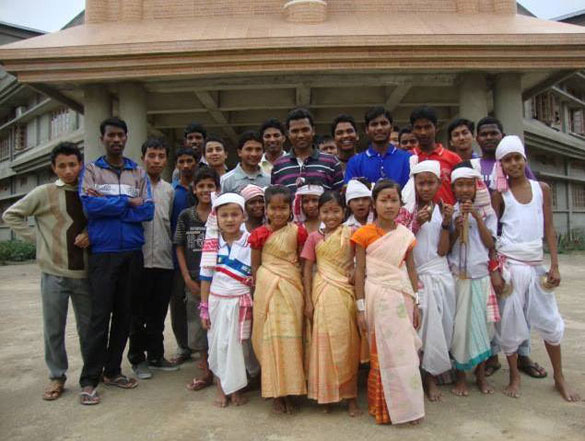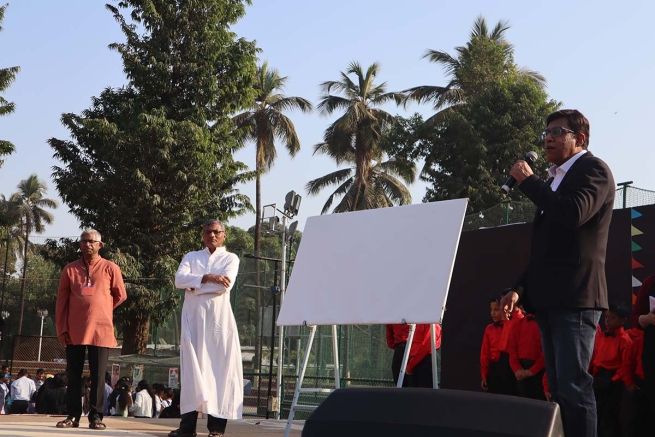INDIA: New Members of Salesian Society Teach English to 500 Children in After School Program

(MissionNewswire) India is home to 25 percent of the world’s poor. According to the World Bank, more than 8 million youth are out-of-school down from more than 25 million in 2003. Lack of educational opportunities in the country are often due to issues of caste, class and gender and with 44 percent of the workforce illiterate, there is much work to be done.
At Salesian centers across India, youth are given access to education through initiatives designed to meet specific learning needs. Bridge or “leapfrog courses” serve pre-adolescent children who have never been to school, offering them a year of intensive study before joining the 4th or 5th grade the following year. For older students who have never been inside a classroom, 18 centers provide basic education and training, giving students leadership and job skills to help them find employment. Coaching is available for students in need of extra help. These non-traditional educational settings aim to reach the greatest number of children and youth possible.
At the Don Bosco Center Sirajuli in the Sonitpur district of Assam, a group of pre-novices preparing to enter the Salesian order, began a project surveying local villages to collect data on the number of children who either attend school or have dropped out. After their research was complete, the pre-novices divided the surveyed youth into five groups according to their age and level of education. With this information, the group was able to begin offering daily English classes at the Don Bosco Center to more than 500 poor children from nine villages. Classes are held in the corridors, courtyard and under trees on the center’s grounds. The nine villages represent a wide variety of religions and cultures including Muslims, Hindi, Adivasi, Bihari, Boro, Assamese, Santali, Oriya and Nepali.
“For three months, we went to different villages for data collection of the dropout students and invited the children who have the eagerness to learn English,” says Brother Swellsborn G. Momin, the coordinator of the program.
Every day after school, children go to the Don Bosco Center to attend the English classes which start at 3:30 pm and run for 75 minutes, beginning with a brief assembly before each lesson. Youth are given the opportunity to learn a second language but perhaps more importantly, they are participating in a structured educational setting with access to strong role models and positive interaction with peers.
“The portion for their study differs from class to class,” explains Brother Kamaleshwar Basumatary, who teaches study methods to senior classes. “For higher level classes, we teach grammar and for the lower classes, we familiarize them with the alphabet, rhythm and values and hygiene. We also teach them action songs and games during the weekend.”
“It is really a great experience to see several clusters of children and our pre-novices taking classes all over the campus and the building. The project benefits both the children as well as the pre-novices,” says Father Joe Almeida, rector of Don Bosco Center Sirajuli.
###
Sources:
Don Bosco India – Sirajuli Pre-Novices teach 500 poor children
World Bank- India




